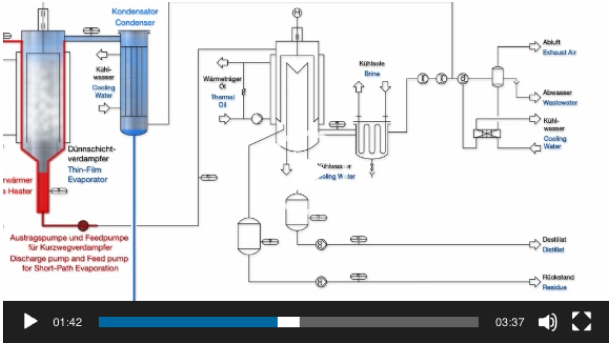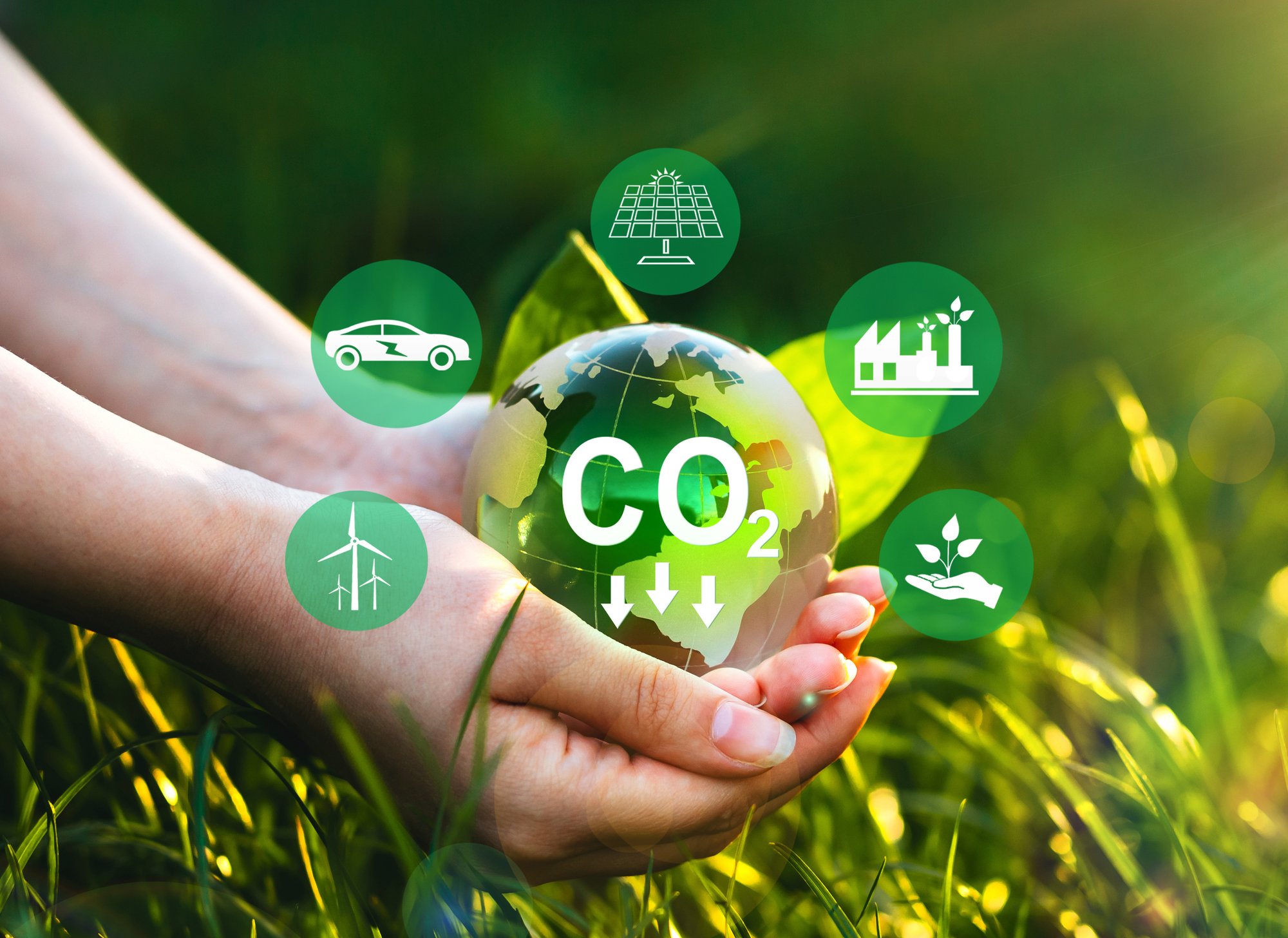CO2 Utilization Technologies
Home
- / GIG Karasek Portfolio Overview
- / CO2 utilization technologies
CO2 Valorization – Transforming carbon dioxide from a problem into an opportunity

GIG Karasek holds the patent for a pioneering CO2 electroreduction system
Converting captured carbon dioxide into valuable industrial products with ECO2CELL
GIG Karasek has made it its mission to provide effective solutions to the global problem of immense CO2 emissions and the associated massive impact on the world‘s climate.
As an expert in industrial plants and plant engineering, we focus on innovative processes for CO2 utilization and are pioneers in the field of electrochemical conversion technology.
From problem to opportunity with ECO2CELL
GIG Karasek has developed ECO2CELL for converting captured carbon dioxide into valuable chemicals and fuels and holds the patent for this pioneering technology.
Thanks to our many years of know-how in plant engineering and process technology, we have the ultimate expertise to implement customer-specific solutions for CO2 conversion.

The success of our process is groundbreaking and has already been successfully demonstrated on a pilot scale. With our ECO2CELL Lab Plant, comprehensive tests can be carried out directly on industrial plants or in the research facility.
Advantages
-
Wide range of end products
-
Zero-emission technology through the use of water and electricity from renewable sources
-
Easy scaling, modular design
-
Mild process conditions
(ambient temperature and pressure) -
Hydrogen does not need to be supplied to the process
CO2 valorization
ECO2CELL Lab Plant
Would you like to know more? Let's discuss how our solution can be used for your application.
End products
-
Methanol
-
Synthesis gas
-
Formic acid
-
Ethylene
-
More upon request

The technology is perfectly suited for all industrial processes – especially in carbon-intensive sectors.
Functional principle
The ECO2CELL unit uses CO2 , water, and electricity in an electrocatalytic process to produce higher-value carbon compounds.
Applying an electrical voltage causes the reduction of CO2 at the cathode and the oxidation of water to oxygen at the anode. Depending on the voltage applied and the use of different catalysts, different end products are produced.
Areas of application
-
All industrial processes – especially in carbon-intensive sectors
-
Cement industry
-
Biogas production
-
Steel industry
-
Petrochemical industry
-
Paper and pulp production
Our services
-
Development of customized CO2 conversion solutions
-
Design and construction of turnkey plants
-
Process optimization and scale-up
-
Consulting
Retifikation
Übersicht
Einsatzgebiete
- Alkohol / Wasser
- Lösemittel / Wasser
- Lösemittel / Fettsäuren
- Trichlorethylen / Öl
- Lösemittel / Wasser aus Spinnbad für Faserindustrie
- Alternative Treibstoffe
- Methanolabscheidung aus Kondensat der Eindampfanlage
- Methanol / Wasser
- Ethanol / Wasser
- Aceton / Wasser
- Butylacetat / Wasser
- Butylalkohol / Wasser
- Glycerin / Wasser
- Milchsäure / Wasser
uvm.
Vorteile
- kontinuierliche Betriebsweise
- energetisch günstiger als eine Destillation
- platzsparend
- technisch weniger aufwändig
Energieoptimierungsmöglichkeiten
- Mehrstufige Anlagen
- Mechanische Brüdenverdichtung
- Thermische Brüdenverdichtung
Kolonneneinbauten
- Packungen
- Böden
- Füllkörper
Reboiler
- Fallfilmverdampfer
- Dünnschichtverdampfer
- Zwangsumlauf

The product is distributed continuously over the entire circumference of the heating wall. Using special wiper elements the wall contact is renewed constantly and the product stream simultaneously transported. The blades do not touch the heating jacket, but prevented crusting or clogging of the heating surface by massively built, arranged with defined gap wiper elements.

Benefit from our expert knowledge and read our CO2 utilization blog series!
We’ve posted the following articles:
-
New technologies for converting CO2 and why GIG Karasek opts for electrochemical reduction
-
The New CO2 Economy: CCU Technologies as Enablers of a Low-Carbon Future







